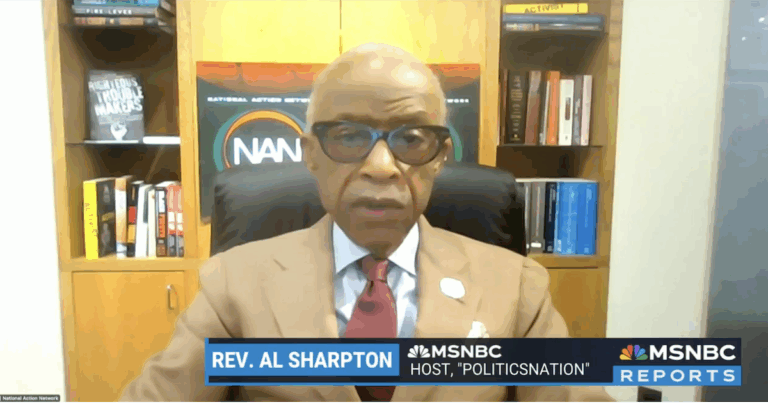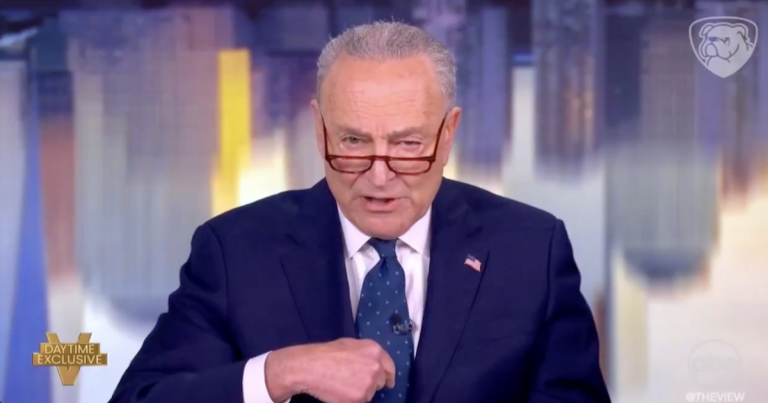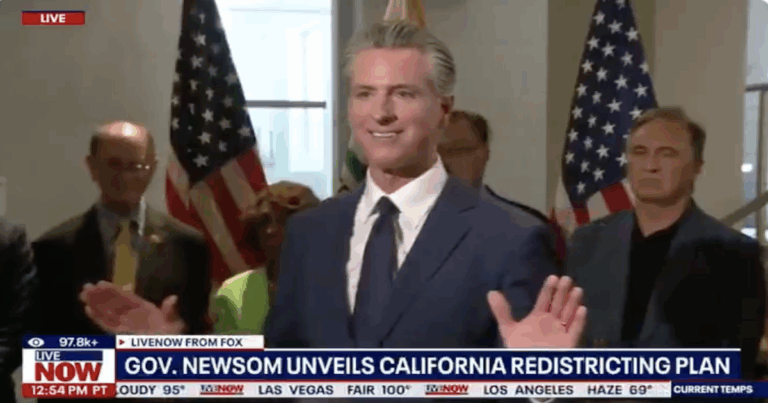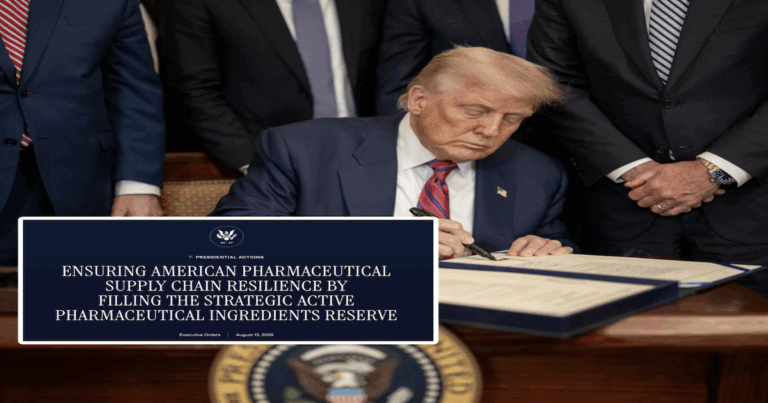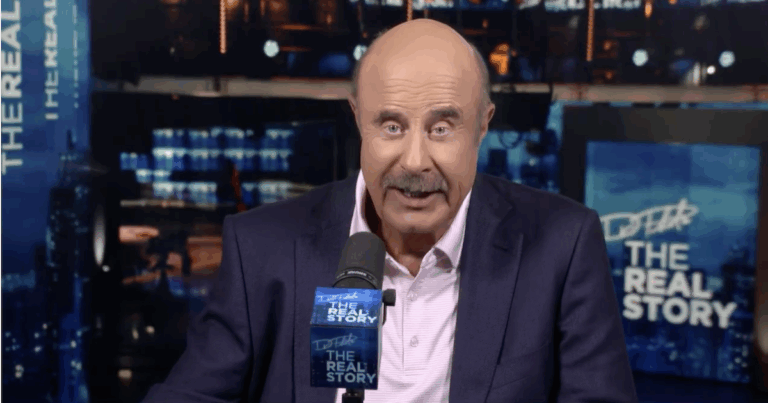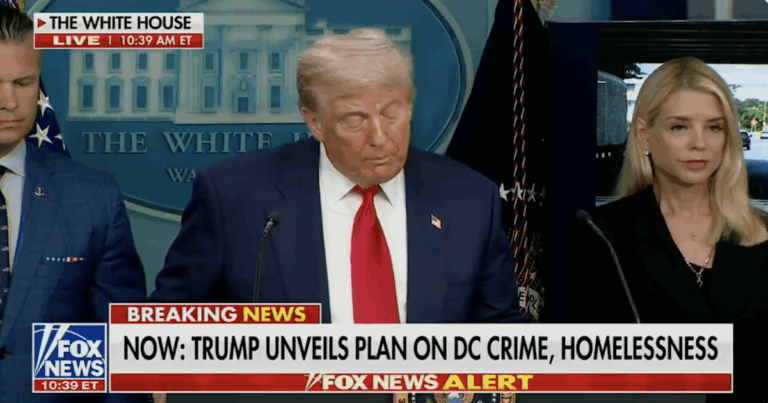Key Takeaways:
- Sharpton’s Accusations: Al Sharpton accused President Trump of “race-baiting” for deploying the National Guard and taking federal control of D.C.’s police, despite mounting public safety concerns.
- Trump’s Crime Crackdown: The president defended his decision, citing rampant gang violence, assaults, and lawlessness in the capital, promising not to let criminals “overtake” the city.
- Political Spin vs. Public Safety: While Sharpton frames the move as targeting black-led cities, Trump’s supporters see it as restoring law and order for all residents, especially the communities most affected by violent crime.
MSNBC’s favorite race-card dealer, Al Sharpton, is at it again—this time accusing President Donald J. Trump of “race-baiting” for taking decisive action to restore order in Washington, D.C.
On “Chris Jansing Reports,” Sharpton claimed Trump’s federal takeover of the D.C. Metropolitan Police and deployment of the National Guard was aimed at “black mayors,” despite the president’s clear message that the move is about public safety, not political optics. “The data says that crime and violent crime has gone down in Washington,” Sharpton insisted, before pivoting to January 6 talking points.
He continued, “There are many cities in between Washington and Chicago, Washington and Oakland. He only chose the black ones. So, it is clear what he’s trying to do: he’s trying to race-bait. His own base is very concerned about Epstein. So what do you do? You go throw your base red meat. Let’s go back into race, all the blacks are breaking crime, breaking the law, we need to go in. It’s race-baiting. I think that what he has done is disgraceful, and it puts people under siege unnecessarily.”
Sharpton added, “It’s a misuse of law enforcement people. Yes, where there’s crime, we need to support those criminals being subject to the law. The majority of the people in Washington are black, their victims are black. We’re not making excuses for criminals, but he did on January 6. And why should we trust his judgment when the data shows different?”
WATCH:
Of course, Sharpton conveniently ignores the reality on the ground—residents and businesses in D.C. have been hammered by violent assaults, carjackings, and lawlessness. Trump made it clear: “Our capital city has been overtaken by violent gangs and bloodthirsty criminals… and we’re not going to let it happen anymore.”
Sharpton’s attempt to frame this as an attack on black communities rings hollow when you consider that most of the victims of violent crime in these cities are themselves black. Protecting law-abiding citizens from predators is not “race-baiting”—it’s leadership.
And let’s be honest: Democrats spent years cheering on soft-on-crime policies that turned America’s once-great cities into dangerous playgrounds for criminals. Now that Trump is putting the hammer down, they’re scrambling to spin it as something sinister.
While Sharpton plays identity politics, Trump is focused on results—restoring law, order, and safety in the nation’s capital. That’s not controversial. That’s common sense.

